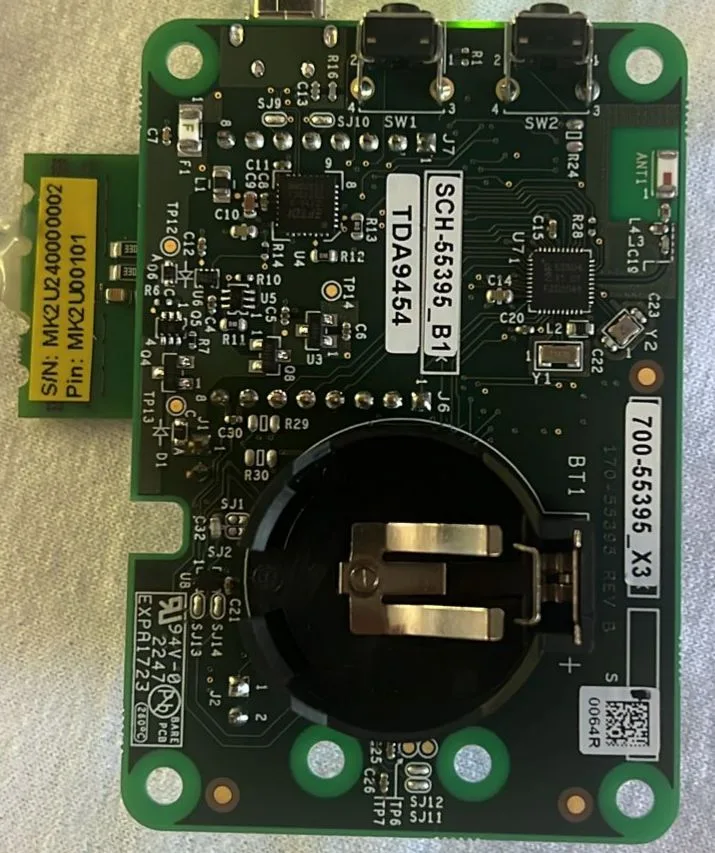When you purchase through links on our site, we may earn an affiliate commission. This doesn’t affect our editorial independence.
Recent findings have revealed the ongoing development and commitment in a quiet building in Lagos’ Opebi district, where young Nigerian engineers are intensely focused. TechPolyp gathered that their screens display circuit diagrams, verification flows, code, and simulation models. Accordingly, each line shows a tiny step toward Africa’s entry into the global semiconductor industry. This is ChipMango, a US-based startup determined to give Africa a foothold in chip design and verification.
It’s noteworthy to maintain that semiconductors are the invisible engines of modern technology. Additionally, they are embedded in phones, cars, laptops, and medical devices. Although these are small, they predict how efficiently every device performs. While the hardware comes from factories, most of the actual value lies in the chip’s design, which is usually the detailed architecture built by engineers. That is the area of expertise for ChipMango, as it focuses precisely on this stage, handling design and verification long before any chip is produced.
Responding to a Global Semiconductor Challenge
The global semiconductor shortage between 2020 and 2023 had a profound impact. When supply chains froze, the world realised its deep dependence on a few manufacturing hubs. Companies like Toyota, Volkswagen, and Audi compulsorily halted production because they couldn’t secure enough chips.
As demand grew, design and verification services became even more valuable. Outsourcing to Asian firms became more expensive, prompting countries to seek new talent bases. Africa, with its growing tech workforce, presented a promising frontier. For ChipMango’s founders, Ola Fadiran and Jovan Andjelich, this was a clear opportunity.
Moving ahead, Fadiran and Andjelich believed that Africa could build semiconductor capacity from the ground up. Furthermore, they envisioned a chip design industry in Nigeria capable of meeting international standards. “Why can’t we bring this to Africa?” Fadiran once asked. That question laid the foundation for ChipMango’s mission: to train local engineers and create world-class designs from Lagos.
ChipMango Positioning as a Local Response to Global Demand
To most Nigerians, designing chips once seemed impossible. That perception began changing in 2021 when ChipMango started mapping a plan to create semiconductor design capacity in Nigeria. The founders built on existing strengths, bright engineering graduates, a growing tech ecosystem, and affordable labour costs.
Similarly, Fadiran’s background includes engineering roles at Intel and Boeing, while Andjelich previously managed Google’s chip operations and helped scale Tesla’s production. Combining their experiences, they launched ChipMango in 2022 to design chips for global clients and train local engineers to global semiconductor standards. By December 2024, the company will have opened its first design centre in Lagos.

Interestingly, this secure facility allows Nigerian engineers to collaborate with foreign clients while protecting sensitive intellectual property. Every workstation inside the centre runs on strict security protocols. “Clients trust us because their designs remain safe,” said ChipMango’s Head of Operations, Agnes Mukiya.
ChipMango: Training Nigeria’s Engineering Talent
It is essential to observe that ChipMango’s approach differs from the fintech trend that dominates Africa’s startup landscape. “We’re not trying to bank the unbanked,” Fadiran explained. “We’re building a hub that can place Africa inside the global semiconductor industry.”
The company runs on a dual model. The first part focuses on training engineers through partnerships with Nigerian universities such as the University of Lagos, Obafemi Awolowo University, and Miva Open University. These programs blend theory with practical projects, ensuring graduates can handle real-world chip design tasks. Students work on designs for global clients under expert supervision, learning how to meet international semiconductor design standards.
The second part of ChipMango’s model is chip verification and customisation. Engineers run countless simulations to ensure designs work perfectly before production. During a recent visit, ten engineers worked quietly in a controlled workspace. Furthermore, it focuses on designing a chip for a hospital ECG machine. Another fine-tuned a verification model for an overseas client. Every detail mattered; each design had to function flawlessly.
Competing on Flexibility and Cost
ChipMango competes with large outsourcing firms like HCL Tech, TATA ELXSI, and FTD Infocom Pvt Limited. These Indian companies dominate the global chip design outsourcing market, but often come with high costs. ChipMango takes a leaner route, offering up to 80% cost reduction using a cloud-based model.
The company’s design centre allows clients to save money while maintaining quality. Its engineers use advanced verification tools that match the best in the industry. Fadiran believes that staying small and efficient gives ChipMango an edge over bigger competitors. This strategy not only builds trust but also positions Nigeria as a credible destination for semiconductor design services.
Placing Africa in the Global Semiconductor Chain
Long-term, ChipMango hopes to place Nigeria firmly in the global semiconductor value chain. Africa currently plays a minimal role in this trillion-dollar industry. ChipMango aims to change that by building capacity, nurturing skilled engineers, and creating a sustainable design ecosystem.
The startup has already achieved an annual recurring revenue of about $200,000. With a planned pre-seed raise of $1 million, it expects to expand the Lagos centre to accommodate up to 90 engineers. This scale-up will enable ChipMango to serve more international clients while supporting local innovation.
Beyond global contracts, the company also wants to create chip designs tailored for African needs. That includes chips optimised for devices that work efficiently under power shortages or harsh environmental conditions. Such locally relevant innovations could redefine how Africa approaches semiconductor technology development.
ChipMango’s Quiet Revolution in Lagos
Inside ChipMango’s Lagos office, the transformation feels both ambitious and practical. Engineers design circuits that could one day power electric cars, phones, or medical equipment tailored to meet the needs of African realities. The company’s focus is clear: build capacity now, so when fabrication plants eventually reach Africa, the expertise will already exist.
This local innovation marks a shift in how Africa engages with global technology. Instead of being passive consumers, Nigerian engineers are becoming active contributors. They are proving that chip design in Nigeria can meet the same standards as those from Asia or Silicon Valley.
For ChipMango, success isn’t measured only in profit but also in impact, the number of engineers trained, the local industries supported, and the growing recognition that Africa can play a serious role in the semiconductor industry.
As the hum of computers fills the Lagos design centre, it’s clear that the continent’s next tech frontier isn’t just in apps or payments. It’s in the tiny circuits at the heart of every device we use. And at the centre of that story stands ChipMango, quietly proving that Africa’s semiconductor future has already begun.









